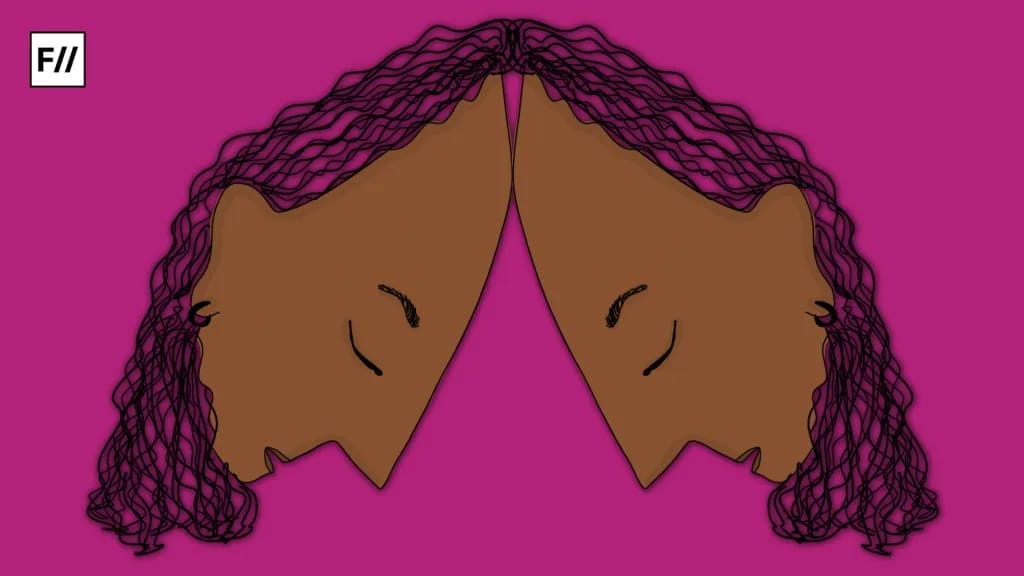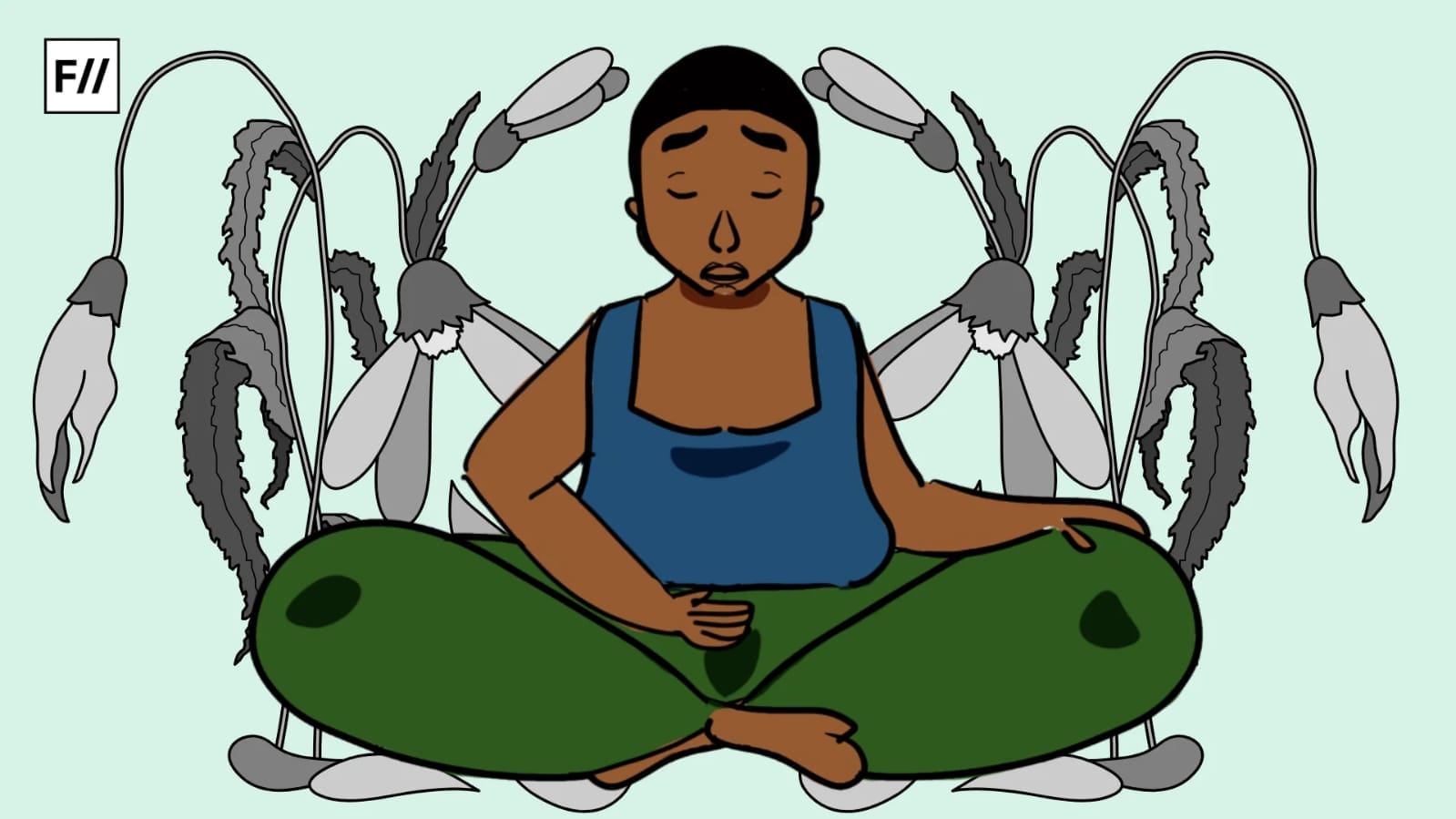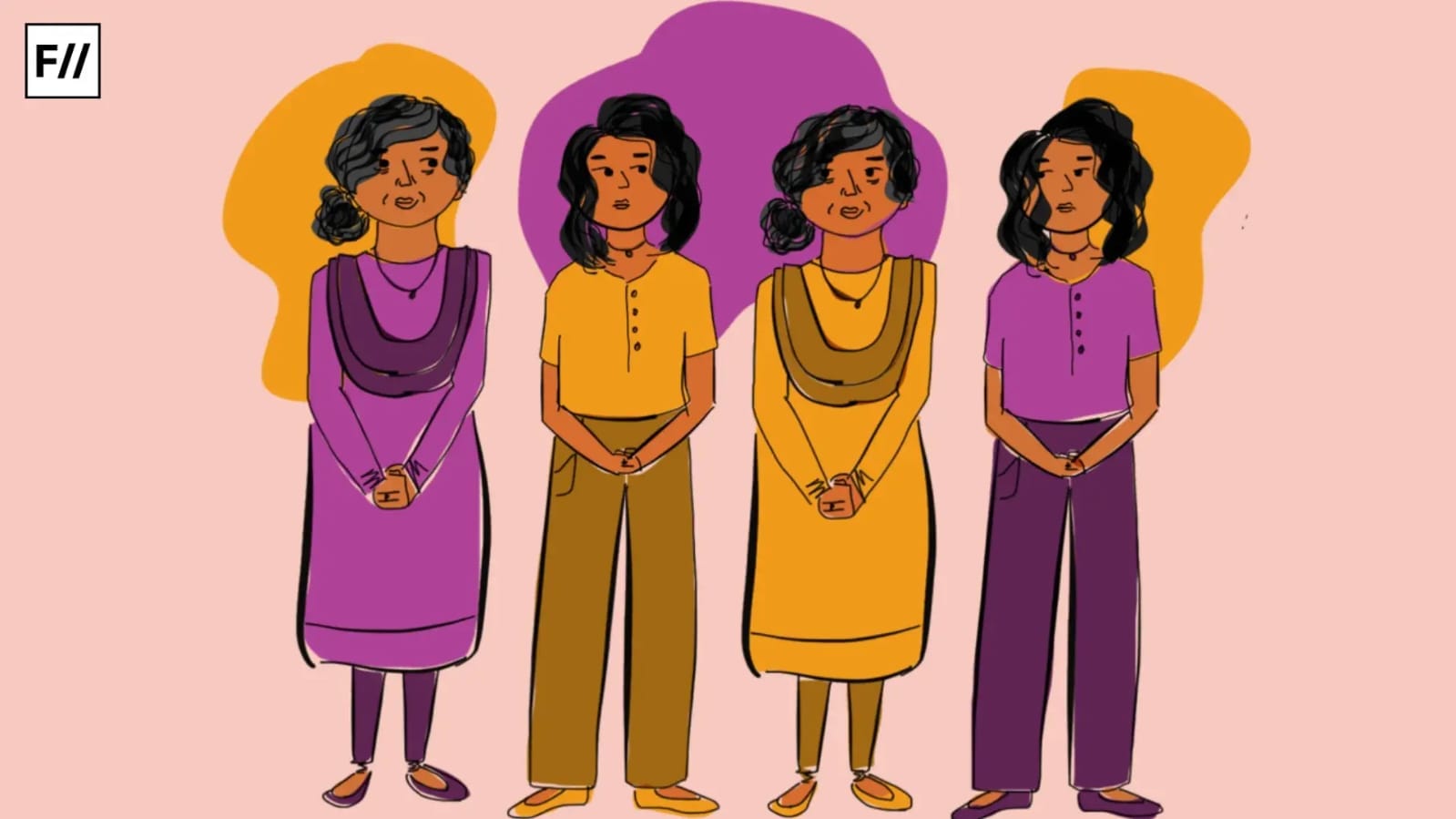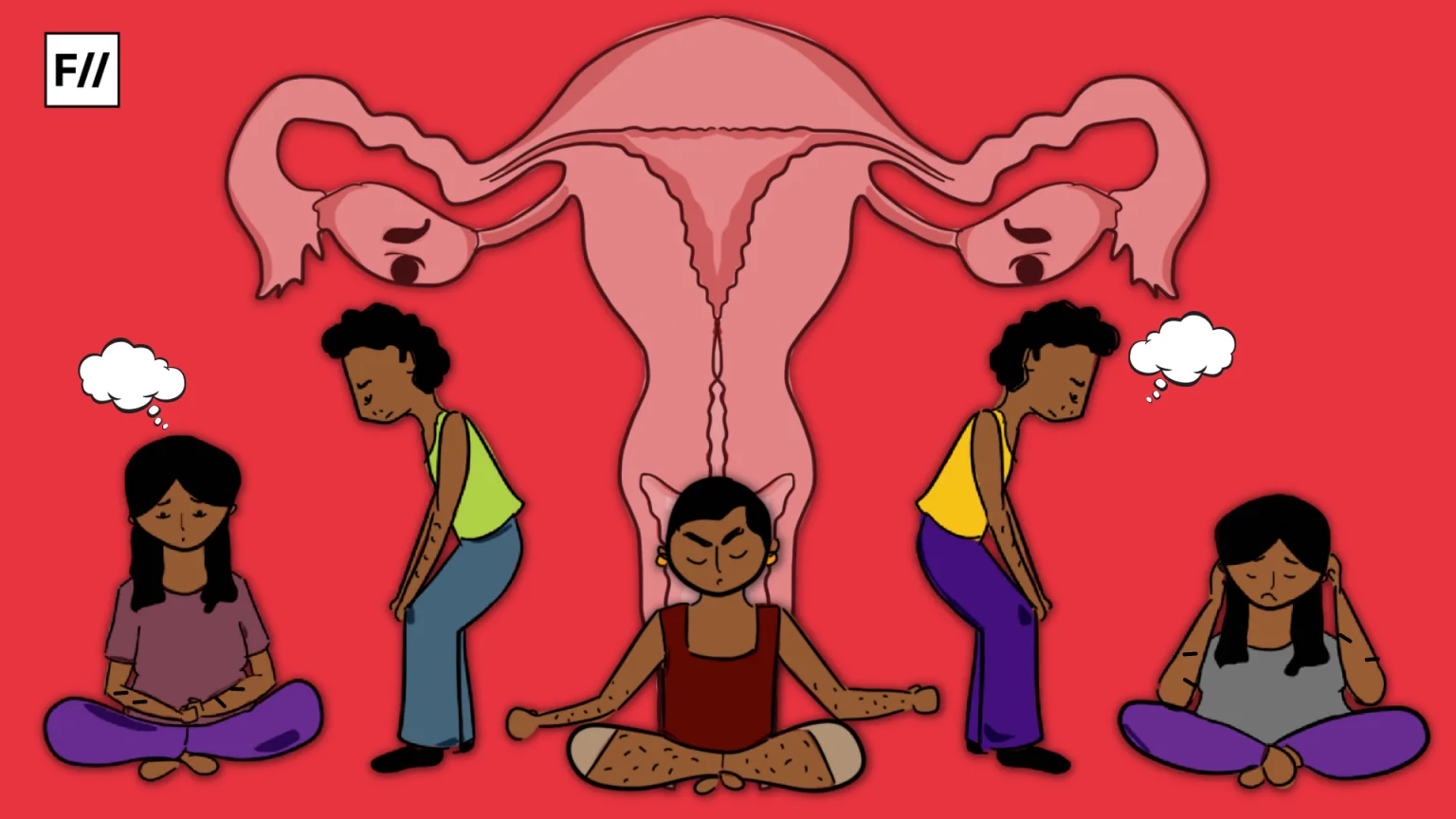After five long hours of traveling on the bus, I was relieved to hear that we would finally be stopping at a roadside food court. This meant that I would finally have the chance to find a clean and hygienic restroom for women, something I had been hoping for over the last three hours. I had been holding back my urge to relieve myself, waiting for an appropriate facility along the way. The bus conductor announced to all passengers that we would stop at this Dhaba—a small food court on the highway—for 20 minutes.
He instructed everyone to eat quickly and relieve themselves before we continued our journey. As soon as the bus came to a halt, all the passengers eagerly began getting down, grateful for the break. I also got off the bus and was immediately started searching for a restroom, assuming there would be one at the food court. However, after looking around, I couldn’t see any public restroom, neither for men nor women. Hoping for some guidance, I approached a food court employee who was busy washing utensils by the roadside. I asked him if there was a restroom available, but his response was disappointing—he simply said, ‘No.’
I looked around again, hoping to spot something that I might have missed. But in the pitch-dark surroundings, I noticed that men were urinating openly on the deserted highway, without any hesitation. Women, on the other hand, had no proper facilities either and were forced to find whatever privacy they could in the bushes or at the side of the road, some distance away.
In one such area, I also noticed some men standing nearby women who were relieving themselves, making the situation even more uncomfortable. Seeing this, I felt extremely uneasy and decided to return to my seat on the bus. I told myself that I would wait until we reached the destination, where I could finally use the restroom at the bus stand in about two hours. Despite my discomfort, I simply could not bring myself to relieve myself in the open, in front of the whole bus full of passengers.

This experience was not just unique to me—it reflects the reality of almost all long-distance road journeys in India. I was traveling by a government bus from Agra to Lucknow in the Western Uttar Pradesh region for professional work. The journey spanned seven hours and covered around 350 kilometres. Interestingly, among all the passengers on the bus, there were only four women, including myself. The other three women seemed to know each other well and were traveling with their young children. Throughout the entire trip, the bus made three stops. However, none of them were genuinely meant for passengers’ comfort or necessities.
Passenger needs vs. hidden deals, harming women
During a government bus journey, the first stop was at a roadside Dhaba where the driver and conductor received free meals in exchange for bringing passengers there. This arrangement benefits the Dhaba’s earnings and provides commissions to the driver and conductor, but it rarely prioritises passenger needs. Basic restroom facilities were unavailable, leaving travellers, especially women, in distress.
The second and third stops were made for male passengers to urinate by the roadside, but women faced a much more uncomfortable situation. Without privacy or proper facilities, they were forced to relieve themselves in the open, often in view of the bus and its passengers. This highlighted the lack of hygienic and private restrooms for female travellers on long journeys, forcing them to compromise their dignity or endure severe discomfort.
I personally experienced this struggle, holding my urine for an extended period. The discomfort became unbearable, but I couldn’t bring myself to relieve in the open due to embarrassment and lack of hygiene. The situation underscored the urgent need for proper sanitation facilities on highways to ensure privacy, dignity, and comfort for all travellers, especially women.
A plea to secure dignity met with untrained and non-behavioural staff
As I travelled on the bus, the conductor announced there would be no more stops, not even for restroom breaks. Panic set in, and after hesitating, I finally approached him, politely requesting a short stop at a food court or washroom. However, he grew irritated and refused, saying the bus had already stopped three times. I explained that I couldn’t relieve myself in the open like other passengers, as it was embarrassing and uncomfortable for women.
Instead of understanding, he raised his voice, insisting that other women had managed and that there were no public washrooms along the highway.
Instead of understanding, he raised his voice, insisting that other women had managed and that there were no public washrooms along the highway.

Feeling humiliated, I returned to my seat as the conductor muttered angrily. By then, my abdominal pain had worsened from holding in my urine for six hours. The discomfort was unbearable, but I had no choice but to endure it in silence. As the journey continued, I desperately hoped it would end soon so I could finally find relief, highlighting the harsh realities women face due to the lack of proper sanitation facilities.
A conversation that unveiled a deeper reality for women
While traveling on a bus, a woman wearing a sari veil (purdah) noticed my conversation with the conductor and asked if I had a problem. Her concern felt genuine, so I responded ‘I need to go to the toilet, I’ve been holding it in for a long time, but they didn’t stop the bus at any proper public washroom or food court. I can’t just urinate in the open, in front of everyone on this bus. It’s too embarrassing and uncomfortable for me.’
She listened quietly and then nodded in agreement and said, ‘That’s right, you are wearing pants, so it must be much more difficult for you. I managed to relieve myself by hiding under my sari.‘ Her words surprised me, and I realised how different our experiences were. She explained that open defecation was normal for her community, as their houses lacked toilets, forcing families to go to the fields.
She explained that open defecation was normal for her community, as their houses lacked toilets, forcing families to go to the fields.
This conversation made me reflect on the harsh realities many women face daily. Basic sanitation remains inaccessible, despite modernisation efforts like “Digital India” and “Made in India.” Open urination is so common that society overlooks it, and women silently endure these struggles. Without proper sanitation, millions face serious health risks, insecurity, and indignity. The issue is much larger than personal discomfort—it’s a widespread crisis affecting women across rural India, highlighting the urgent need for better infrastructure and inclusive policies to ensure hygiene, privacy, and dignity for all.
Lack of gender awareness among roadways staff: a threat to women’s safety and health
Government bus drivers and conductors show little understanding of gender sensitivity, privacy, and respect. They receive no special training on women’s security or basic behavioural awareness. As a result, women are forced to relieve themselves in isolated bushes on dark highways, raising serious safety concerns. Moreover, open defecation exposes us to major health risks such as urinary tract infections (UTIs), bacterial exposure, and weakened pelvic muscles, leading to long-term health issues.
The fight for safe sanitation for women
In India, women and girls face significant challenges in accessing clean water and safe sanitation. In rural areas, they often walk long distances to fetch water, losing time for education or work. Without proper toilets, many resort to open defecation, risking health issues and harassment. Public toilets, when available, lack privacy and safety, increasing the risk of abuse. Poor menstrual hygiene resources force many girls to miss school, disrupting their education and future opportunities. During emergencies like floods, these issues worsen, making women more vulnerable to diseases and violence.

Social norms and inadequate infrastructure further limit access to clean water and sanitation. Investing in WASH (Water, Sanitation, and Hygiene) infrastructure, promoting hygiene practices, and involving women in policy-making can bring change. Ensuring safe sanitation empowers women to live with dignity and freedom.
Rajni, a 17-year-old girl, faced sexual harassment while relieving herself in the fields. Despite standing up to her harasser, her family faced caste-based abuse and threats. Such incidents show how lack of proper sanitation exposes women to harassment and violence. Addressing these issues is crucial to ensuring safety, dignity, and equality for women and girls in India.
A right denied: the struggle for inclusive sanitation for gender minorities
The lack of proper WASH facilities affects not only women but also gender minorities. Many transgender individuals in India face discrimination when using public restrooms, often met with stares or hostility. Most toilets are divided by male and female categories, leaving them without safe options. This exclusion leads to verbal abuse, violence, and even health risks as many avoid public toilets.
Despite progress under the Swachh Bharat Mission, transgender-inclusive toilets remain rare.
Despite progress under the Swachh Bharat Mission, transgender-inclusive toilets remain rare. Activists push for change, but data on built facilities is limited. Without safe sanitation, transgender individuals struggle in healthcare, education, and jobs, increasing their vulnerability.
To understand gender minority challenges, I spoke with Tamil Nadu’s transgender activist A. Revathi. She shared the harsh discrimination third-gender individuals face in public washrooms. Denied entry to female restrooms and insulted in male ones, she often had to hold her urine for long periods, leading to severe pain and infections.
Revathi advocates for gender-neutral washrooms instead of separate ones, fearing segregation. She urges governments, organisations, and NGOs to raise awareness about third-gender rights. Removing gender labels from restrooms and promoting inclusion will help end stigma and ensure safe, dignified facilities for all.
Delhi-based transgender activist Neeti Shukla stresses the urgent need for dedicated public washrooms for third-gender individuals. She highlights the struggles young transgender people face when choosing between male or female restrooms, as neither feels safe. Unsafe washrooms also contribute to school dropouts due to harassment and violence. Shukla advocates for adding third-gender awareness in school subjects like civics and biology to promote acceptance.

In this case, meaningful change requires listening to transgender voices and creating policies that ensure safe, dignified facilities for all, regardless of gender identity.
After a long journey, the bus finally reached the Lucknow bus stand, where I was relieved to find a clean washroom. However, after holding my urine for seven hours, I felt severe pain in my lower abdomen and right kidney area, which lasted for three days. This made me realise how harmful it is to hold urine for so long. Health experts warn that it can lead to infections, kidney problems, and weakened bladder muscles. This raises an important question—if poor sanitation causes serious harm to women, who is responsible?





